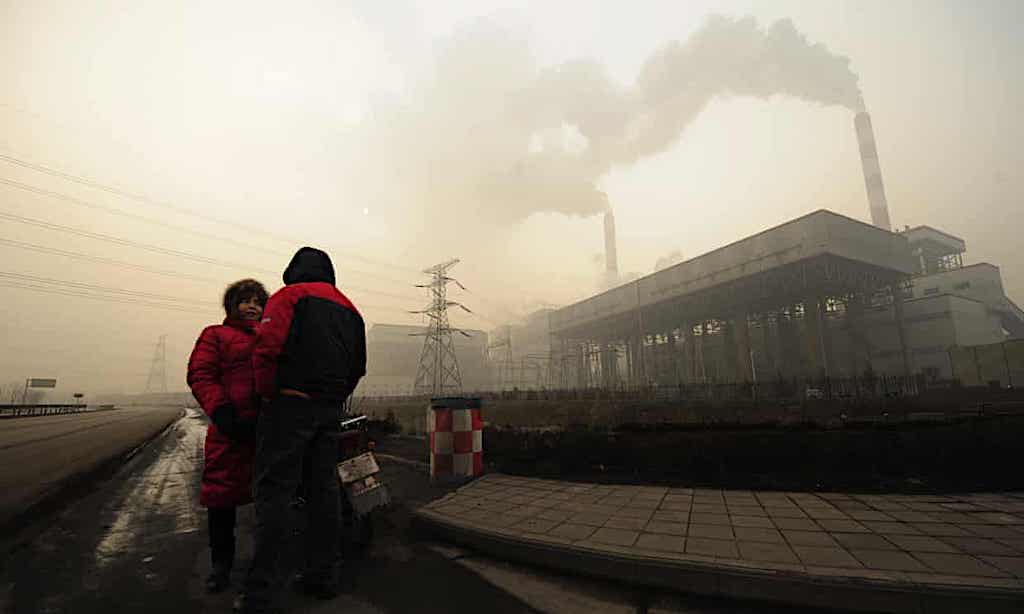Financial institutions channeled more than $1.5 trillion into the coal industry in loans and underwriting from January 2019 to November 2021, even though many have made net-zero pledges, a report by Urgewald’s Global Coal Exit List (GCEL) has shown.
Urgewald’s Global Coal Exit List (GCEL) is a powerful information tool and has played an influential role in shaping new policies by financial institutions on coal. The list is a publically available database providing data on many private companies that is otherwise hard to access. This information is especially relevant for banks and insurers.
Despite repeated net-zero promises, green slogans, and acknowledgments that carbon emissions must be curbed in order to avoid climate disaster, GCEL, a group of 28 non-government organizations (NGOs) showed that international banks and investment institutions continued to funnel the money to coal, according to a report published on Tuesday, according to Fortune.
The most disturbing information coming out of the report is that while these financial institutions still have equity or debt in existing coal plants or are financing the cost of building new ones, many have publicly signed onto “net zero” pledges to curb carbon emissions.
According to CTV News Canada, banks are continuing to fund 1,032 firms involved in the mining, trading, transportation, and utilization of coal, the research showed.
“Banks like to argue that they want to help their coal clients transition, but the reality is that almost none of these companies are transitioning,” said Katrin Ganswind, head of financial research at German environmental group Urgewald, which led the research.
“And they have little incentive to do so as long as bankers continue writing them blank checks.”

The study said banks from six countries – China, the United States, Japan, India, Great Britain, and Canada – were responsible for 86 percent of global coal financing over the period.
Direct loans amounted to $373 billion, with Japanese banks Mizuho Financial, Mitsubishi UFJ Financial — both members of the Net Zero Banking Alliance — identified as the two biggest lenders.
Mizuho told Reuters in a statement that the report did not reflect the “actual situation.” It said it was further developing sustainability strategies with clients via services such as transition finance and consulting.
Another $1.2 trillion was channeled to coal firms via underwriting. All of the top 10 underwriters were Chinese, with Industrial and Commercial Bank of China (ICBC) in first place, to the tune of $57 billion.
The U.K.’s Barclays bank came in fourth place, and U.S. bank Citigroup came in fifth in the number of coal projects on their balance sheets, behind Japanese banks Mizuho Financial, Mitsubishi UFJ Financial, and ICBC.
Institutional investments in coal firms over the period amounted to $469 billion, with BlackRock at the top of the list with $34 billion, reports CNN News. The US asset manager declined to comment on Tuesday, however, chief executive Larry Fink wrote in January that “divesting from entire sectors… will not get the world to net-zero.”
“Foresighted companies across a wide range of carbon-intensive sectors are transforming their businesses, and their actions are a critical part of decarbonization,” he wrote in a letter to fellow chief executives.
Almost all investment into new coal projects came from China, with only one non-Chinese company breaking into the top 10 —U.S. bank J.P. Morgan Chase, ranking seventh in terms of the largest bank lenders to the coal industry, according to the report.
The coal sector is responsible for nearly half of global greenhouse gas emissions. More than 40 countries pledged to end coal use following climate talks in Glasgow in November, though major consumers such as China, India, and the United States did not sign up.














